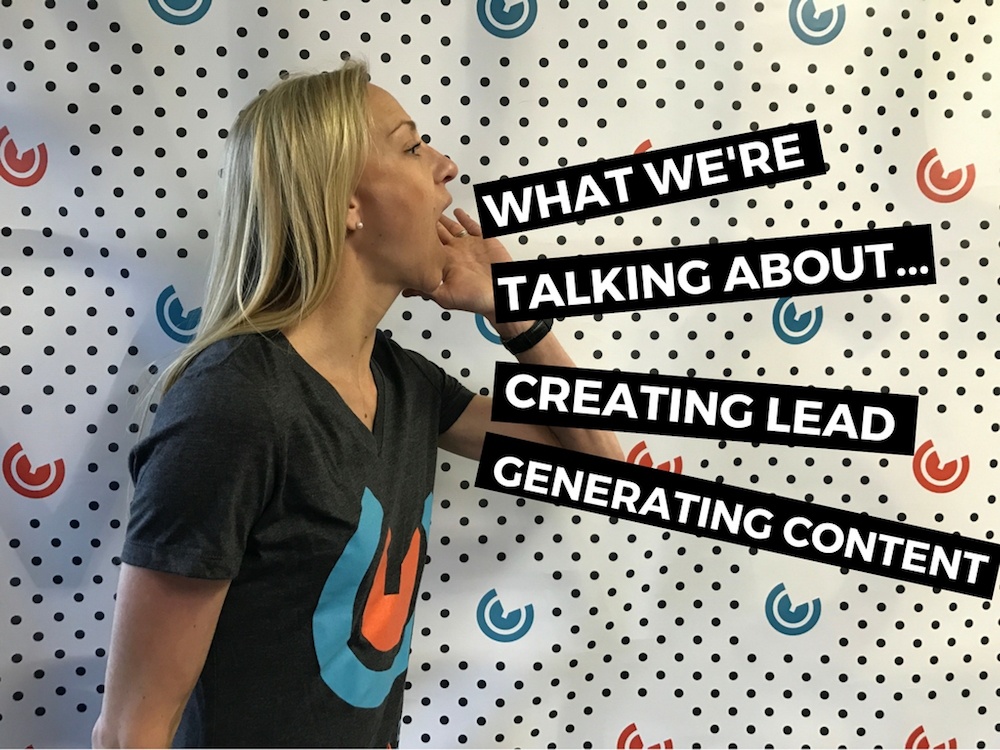3 Tips For Getting Your Content Noticed Online
You probably have heard about the importance of inbound marketing. You may have even began to create content that not only will delight your current...
I know what I am looking for, and would like to chat.
A team of data-driven marketers obsessed with generating revenue for our clients.
Because the proof is in the pudding.
At Campaign Creators we live by three principles: Autonomy, Mastery, Purpose.
4 min read
 Campaign Creators
:
4/13/16 5:00 AM
Campaign Creators
:
4/13/16 5:00 AM

“Content is king,” Bill Gates stated in his now-famous ’96 article. “But to be successful online,” he writes, “a magazine can't just take what it has in print and move it to the electronic realm. There isn't enough depth or interactivity in print content to overcome the drawbacks of the online medium.” Twenty years ago Mr. Gates predicted that the Internet would forever change how we deliver and absorb information. It turns out he was absolutely right. Over the years—and the internet’s growing ubiquity— online businesses have become increasingly dependent upon content marketing. But in what ways have we, in marketing, pushed the form of how our audience interacts with online content?
That is a good question. The easy thing would be to say that it is a strategic approach to customer action by providing unique and valuable information to a targeted audience. In reality, content marketing is not concrete in any cohesive sense.
The "unique and valuable information" stated above is called "content," and it can come in the form of infographics, eBooks, videos, blogs, research documents, social posts—the list goes on. Which types of content you use, how it’s used, whom it targets, how it’s distributed, etc. that all changes. It varies between industries, and may even change within a company from day to day.
The goal is to keep your target audience engaged so that they keep your company first in mind and eventually convert. But to keep them engaged, you need to switch it up. Eventually, over time, you may notice patterns.
In other words, anyone can post content, but content marketing is the entire process of strategy, creation, implementation and analysis. That analysis then informs, validates, and empowers a new strategy. Content marketing is less of a thing that can be defined, and more of a cyclic way of learning and growing as a company online.
Have you ever read Dale Carnegie’s How to Win Friends and Influence People? It’s one of those books that everyone in business says you should read. In one chapter, the author talks about how he met someone at a party and was absolutely fascinated by the person's story. All night, the author kept close to his new friend’s side, asking questions and listening, while talking very little about himself. At the end of the night, though he didn’t interact much with anyone else that night, that one guest named him the most interesting man at the party.
When I read that, I interpreted it as the great moral in content marketing: listen to what your audience has to say, speak to their interests, and talk little about yourself. That is the ultimate aim of a sponsored post.
Rather than creating something in-house and posting it directly on their website or blog, a company will pay another company. For example, Company A pays Company B for a sponsored post. Company B will create a piece of content that will not mention Company A in any way, but will most likely speak to issues within Company A’s industry. This piece of content is posted on some online real estate owned by Company B, but will feature a banner ad for Company A. Or maybe an influencer from Company A wrote the post, but it was posted on Company B’s website.
Unlike branded content (in which Company A-branded content is posted on Company B's site), sponsored content will carry Company B's branding. For all intents and purposes, it will look like anything else posted on Company B's page. Research shows that readers cannot tell the difference between this type of ad and an editorial. This type of cross-pollination works in two ways:
This method of marketing can be very effective; audiences have proven more receptive to brands if they are relevant to something the user is already reading. However, the placement of the company name needs to be strategic.
The fascinating and frustrating thing about content marketing is that the rules are always changing. Something amazing today could be useless tomorrow and vice versa. Audiences have begun to exhibit banner blindness; they are so used to ads located the edges of useful content, that they’ve learned to tune it out entirely. This phenomenon is exactly why so many brands are switching to native advertising.
These types of advertisements are very closely related; in fact, the only clear difference is the CTA. As sponsored content, the CTA will be on the ad or link to the influencer's site; in native advertising, that CTA is within the content itself. The self-promotion here tends to be a bit more blatant—like if sponsored content and product placement had a baby.
This isn’t to say that native advertising is bad. According to recent reports, 70% of people say they prefer to learn about products in content as opposed to ads. The key to a successful native ad, as in all content marketing, is relevance. If a magazine website posts an article about eye health, mentioning statistics from research conducted by Visine doesn’t sound like too far of a stretch. In fact, mentioning the research may even compel the reader to click on the link; mission accomplished.
The problem comes when the content is either irrelevant or remotely related. John Oliver hits the nail right on the head in his sketch:
Too many content marketers are trying to tie in a product that has nothing to do with the content they are pushing. Over time, this breeds distrust for anything bearing that “sponsored” badge. Like banner blindness, will this form of advertisement soon become extinct? According to surveys, investment in native advertising is projected to increase by over a billion in the next year. This technique will, at least, remain relevant through 2017.
Whether your visitors come from organic search or native advertisements, be sure to capture them as leads with a Lead Generation Campaign. Learn how to do it in this free guide.
What do you think of native advertisement? Do you trust it more or less than sponsored content? Leave us a little love note below and share your thoughts.

You probably have heard about the importance of inbound marketing. You may have even began to create content that not only will delight your current...

1 min read
You would never go to a store and purchase something that you didn't see value in, right? That's pretty obvious. But how many times have other...

Search engines work every day to improve the user experience. You, the user, are like the worst kind of significant other – demanding and needy....